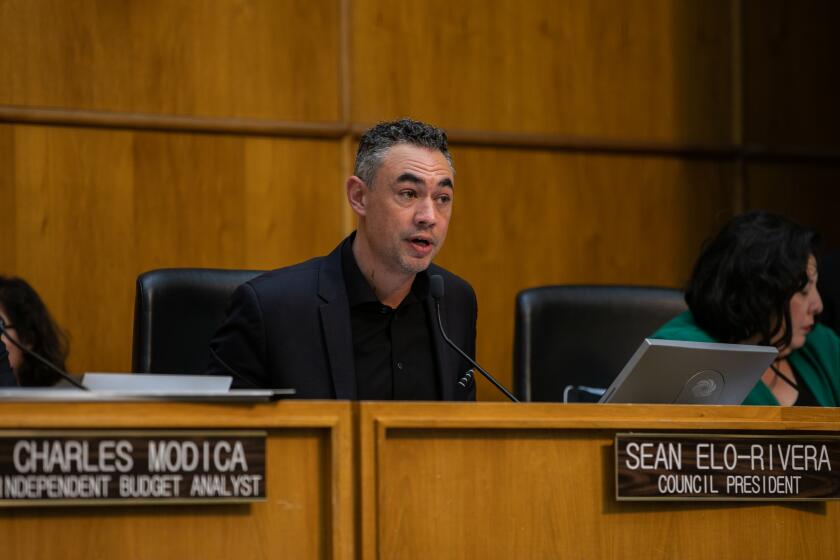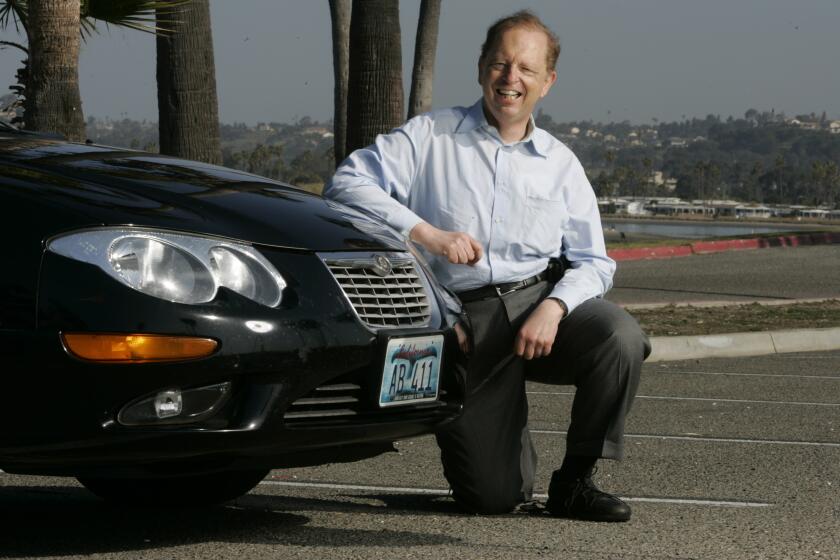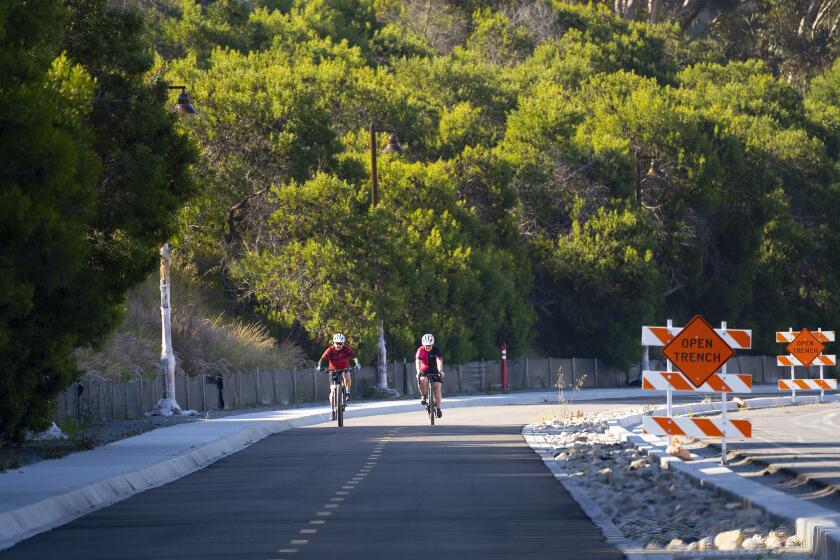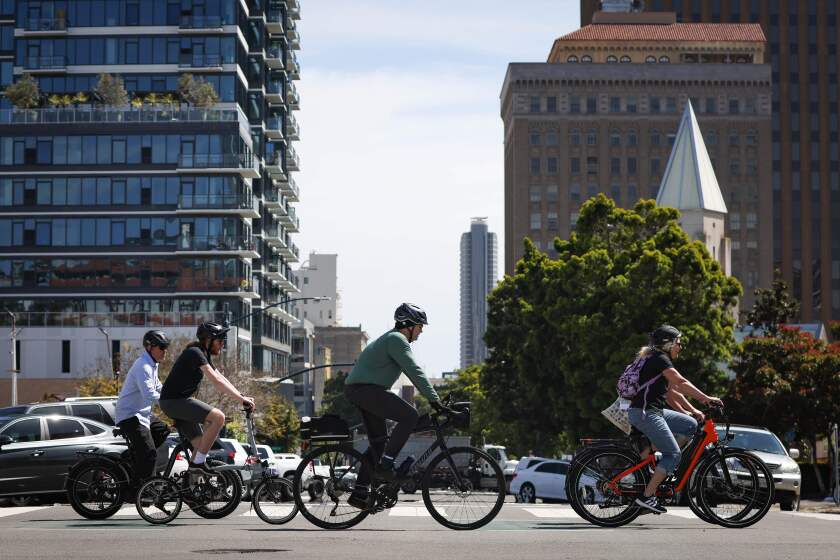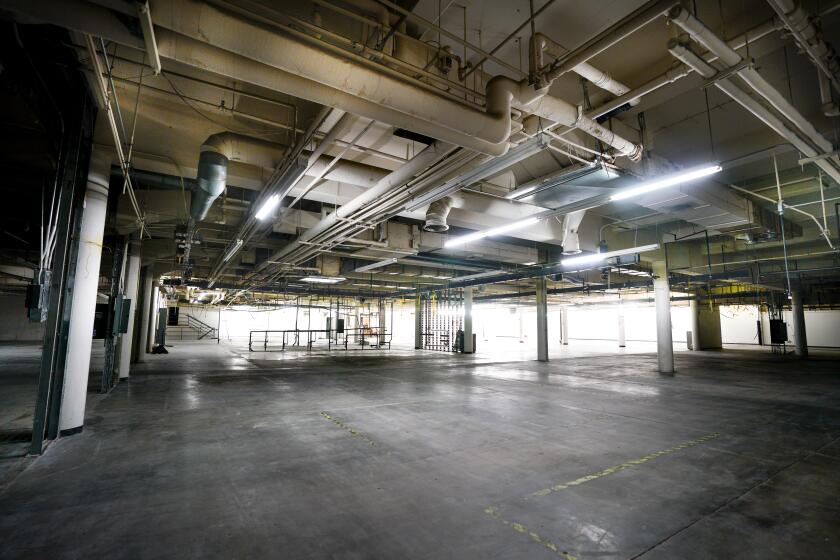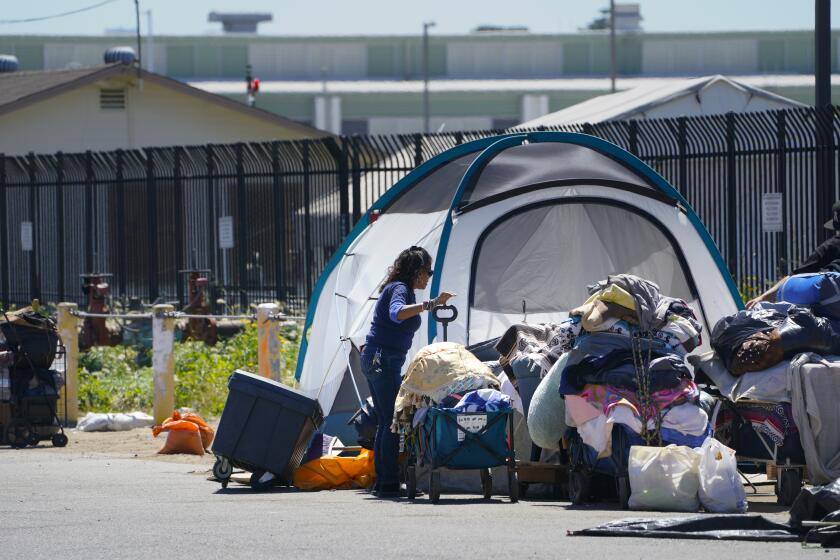San Diego set to repeal law prohibiting homeless people from living in cars
The San Diego City Council is scheduled Tuesday to repeal a 35-year-old law that makes it illegal for people to live inside vehicles.
Advocates for homeless people say it could be a key step toward ending the local criminalization of homelessness. They hope the repeal is permanent but they expressed concerns that city officials plan to soon propose a revised version of the law that could be more legally sound.
A federal judge in August ordered the city to stop ticketing people under the law, saying it was unconstitutional because it’s too vague for enforcement.
U.S. District Judge Anthony Battaglia said the law doesn’t indicate specifically what turns a vehicle into a person’s home or “living quarters,” noting that people have gotten tickets under the law for reading a book inside their vehicle.
A spokesman for Mayor Kevin Faulconer declined to comment on whether the city plans to replace the repealed law with a revised version.
“The item tomorrow is about repealing the existing ordinance,”’ Greg Block said Monday. “I can’t comment beyond that.”
Supporters of such laws say people living in vehicles, sometimes on the street in front of single-family homes, create public safety and sanitation problems because typical passenger cars don’t include toilets or places to bathe. Those were the arguments made in favor of the law when the San Diego City Council approved it 7-1 in August 1983.
The injunction ordered by Battaglia came in response to a lawsuit filed on behalf of disabled homeless people who prefer to live in vehicles because they don’t function well in traditional homeless shelters.
Ann Menasche, a lawyer for Disability Rights California who helped file the suit, applauded the city Monday for proposing a repeal of the ordinance.
“The writing was clearly on the wall, and they are doing the right thing, so we appreciate that,” she said. “I think it’s a win, but I can’t say I think it’s the end of the struggle. They’ve decided that they can’t defend the current habitation ordinance.”
Menasche said she doesn’t believe it’s possible for the city to approve a legally defensible version of the law. But that may not stop city officials from trying, she said.
“I think it’s going to depend on the politics of the situation,” she said, noting that Democrats who have expressed more sympathy for the homeless gained a veto-proof majority on the council in November. “The politics are slightly better, but I don’t know all of the people on the council and how they’re going to be.”
Menasche said it would be ideal if the repeal is a sign that city officials have decided to take a less punitive approach to homelessness.
“We want this to be the first in a series of actions to show the end of criminalizing homelessness,” she said. “If you’re living in your car, it’s because you don’t have other options, and it should not be criminalized. The city doesn’t need to treat them like bad children.”
The city has created designated “safe lots” where homeless people living in vehicles can park.
Menasche said those lots don’t eliminate the need for homeless people living in vehicles to park elsewhere. Those lots may not be close enough to where a person gets medical attention, stores their belongings or meets with friends and family members, she said.
Ironically, the injunction blocking enforcement of the vehicle habitation ordinance has not significantly helped the plaintiffs in that lawsuit, because they live in recreational vehicles, not passenger cars.
Police have continued issuing tickets to people in RV’s under the city’s oversized vehicle law, which prohibits recreational vehicles from parking on any San Diego city street or in any public parking lot between 2 a.m. and 6 a.m.
Battaglia, the federal judge, ruled that that law doesn’t suffer from the same vagueness as the vehicle habitation ordinance.
That has prompted homeless advocacy groups to launch a program that helps fight the RV tickets with sophisticated appeals. The advocacy groups say that even when those appeals fail, they make it harder for the city to force homeless people out of their RVs and onto the streets.
Colleen Cusack, who has represented homeless people living in cars for the last five years, said it’s not unusual for city officials to shift from one law to the next when ordered to stop enforcing something. Nevertheless, the repeal of the vehicle habitation ordinance would be a significant victory if it’s a permanent move by the city, she added.
“It would be one less tool the city would have to criminalize this population,” she said. “And it could symbolize the city’s shift to a more humanitarian approach to the homelessness crisis, instead of using criminalization.”
She said the vehicle habitation law is notoriously arbitrary. Police were told to look for bedding, toiletries and food wrappers inside vehicles as evidence of habitation, items she contends are often in the cars of people with homes.
Tuesday’s council hearing is scheduled to start at 2 p.m. at City Hall, 202 C St.
david.garrick@sduniontribune.com (619) 269-8906 Twitter:@UTDavidGarrick
Get Essential San Diego, weekday mornings
Get top headlines from the Union-Tribune in your inbox weekday mornings, including top news, local, sports, business, entertainment and opinion.
You may occasionally receive promotional content from the San Diego Union-Tribune.

